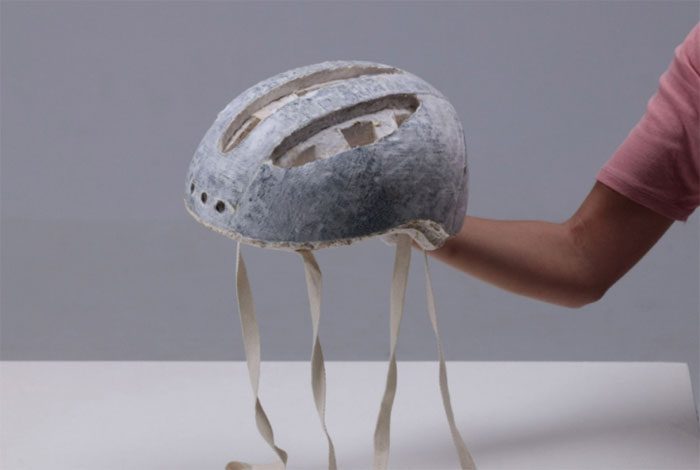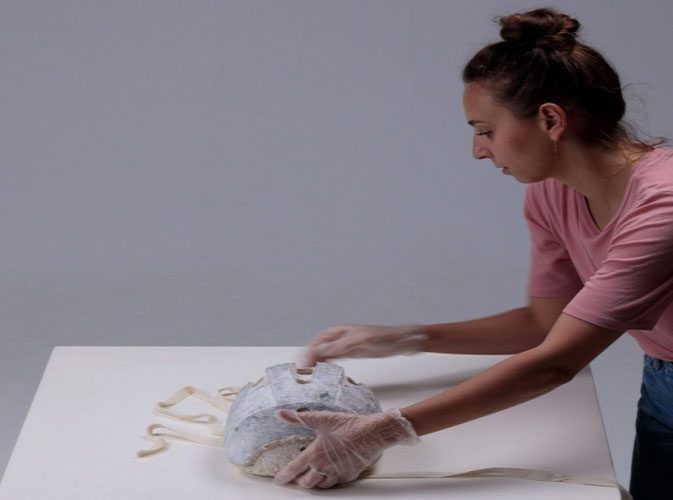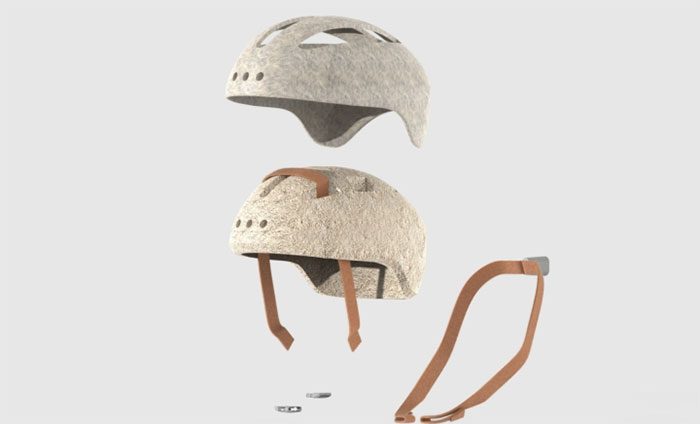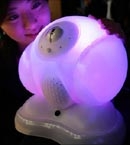A Studio in the Netherlands Designs an Eco-Friendly Bicycle Helmet Made from Mushroom Fiber and Hemp.
According to Dezeen, the bicycle helmets approved for use in the Netherlands are currently made from materials that are difficult to decompose and are quite expensive. However, a studio named MOM has introduced a 100% eco-friendly helmet prototype that still ensures safety.
Instead of being made from expensive carbon fiber or environmentally harmful EPS plastic, MyHelmet – this “rice cooker” is made from mushroom fiber.

MyHelmet is a completely eco-friendly helmet. (Photo: Dezeen).
Specifically, the main protective shell of MyHelmet is made from a type of fiber extracted from the fleshy roots of mushrooms. The thin outer shell and straps of the helmet are made from hemp. Thanks to its entirely natural materials, the production process of MyHelmet does not emit CO2 into the environment, and the helmet itself can decompose after it is no longer in use.
The helmet’s creator, Alessandra Sisti, mentioned that the idea for an eco-friendly helmet was her graduation project, and the MOM studio helped her find the most suitable materials after numerous experiments.

Alessandra Sisti is the creator of the mushroom fiber helmet. (Photo: Dezeen).
“MyHelmet replaces conventional EPS plastic with mushroom fiber cultivated in a special environment. During the development process, I continuously heat the mushroom fibers, which makes their structure similar to EPS plastic: lightweight, low thermal conductivity, and sturdy. Additionally, the natural structure of the mushroom fiber also helps improve air circulation, making the wearer feel cooler compared to traditional helmets,” Sisti shared.
In addition to the main material being mushroom fiber, MyHelmet also consists of various other natural materials to create adhesion between the mushroom fiber and the hemp. This means the helmet does not require any adhesives.

The main frame of MyHelmet is made from mushroom fiber, with straps and outer shell made from hemp. (Photo: Dezeen).
Regarding safety, MOM studio simulated the NTA quality test (helmet safety standard in the Netherlands) to evaluate MyHelmet. The results were very promising, but further official tests are needed before the helmet can be mass-produced.
According to traffic experts in the Netherlands, users should replace their helmets every 3-5 years, as the durability of helmets can decrease due to wear and tear during use. The number of used helmets generates a significant amount of plastic waste, costing the government considerable funds for recycling, but helmets made from mushroom fiber could be the solution to this problem.




















































